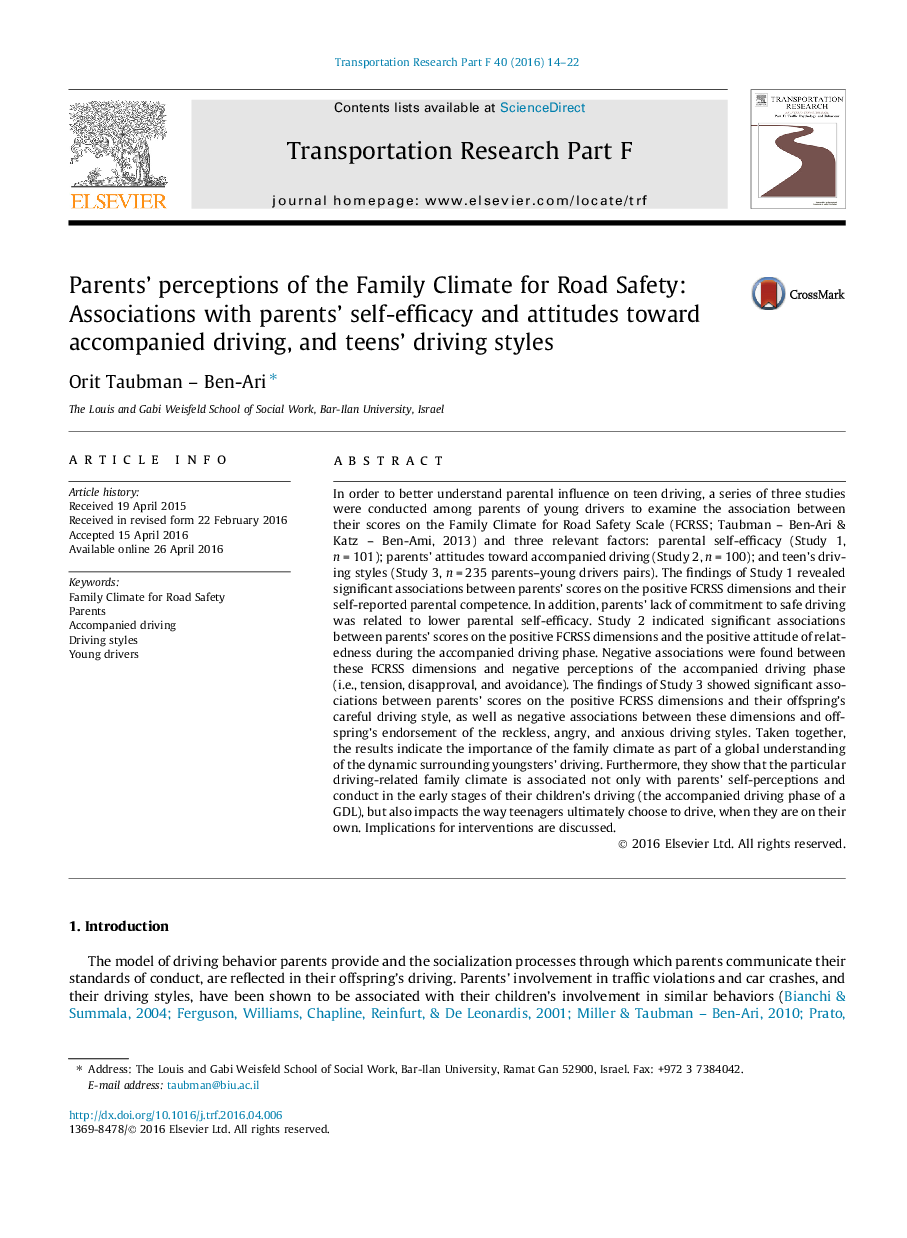| کد مقاله | کد نشریه | سال انتشار | مقاله انگلیسی | نسخه تمام متن |
|---|---|---|---|---|
| 897596 | 1472443 | 2016 | 9 صفحه PDF | دانلود رایگان |
• The study examined several factors related to the parents’ perceptions of the Family Climate for Road Safety.
• Parents’ FCRS scores were associated with general parental competence.
• Parents’ FCRS scores were related to their attitudes toward the accompanied driving phase.
• FCRS dimensions perceived by parents were associated with their offspring’s driving styles.
In order to better understand parental influence on teen driving, a series of three studies were conducted among parents of young drivers to examine the association between their scores on the Family Climate for Road Safety Scale (FCRSS; Taubman – Ben-Ari & Katz – Ben-Ami, 2013) and three relevant factors: parental self-efficacy (Study 1, n = 101); parents’ attitudes toward accompanied driving (Study 2, n = 100); and teen’s driving styles (Study 3, n = 235 parents–young drivers pairs). The findings of Study 1 revealed significant associations between parents’ scores on the positive FCRSS dimensions and their self-reported parental competence. In addition, parents’ lack of commitment to safe driving was related to lower parental self-efficacy. Study 2 indicated significant associations between parents’ scores on the positive FCRSS dimensions and the positive attitude of relatedness during the accompanied driving phase. Negative associations were found between these FCRSS dimensions and negative perceptions of the accompanied driving phase (i.e., tension, disapproval, and avoidance). The findings of Study 3 showed significant associations between parents’ scores on the positive FCRSS dimensions and their offspring’s careful driving style, as well as negative associations between these dimensions and offspring’s endorsement of the reckless, angry, and anxious driving styles. Taken together, the results indicate the importance of the family climate as part of a global understanding of the dynamic surrounding youngsters’ driving. Furthermore, they show that the particular driving-related family climate is associated not only with parents’ self-perceptions and conduct in the early stages of their children’s driving (the accompanied driving phase of a GDL), but also impacts the way teenagers ultimately choose to drive, when they are on their own. Implications for interventions are discussed.
Journal: Transportation Research Part F: Traffic Psychology and Behaviour - Volume 40, July 2016, Pages 14–22
